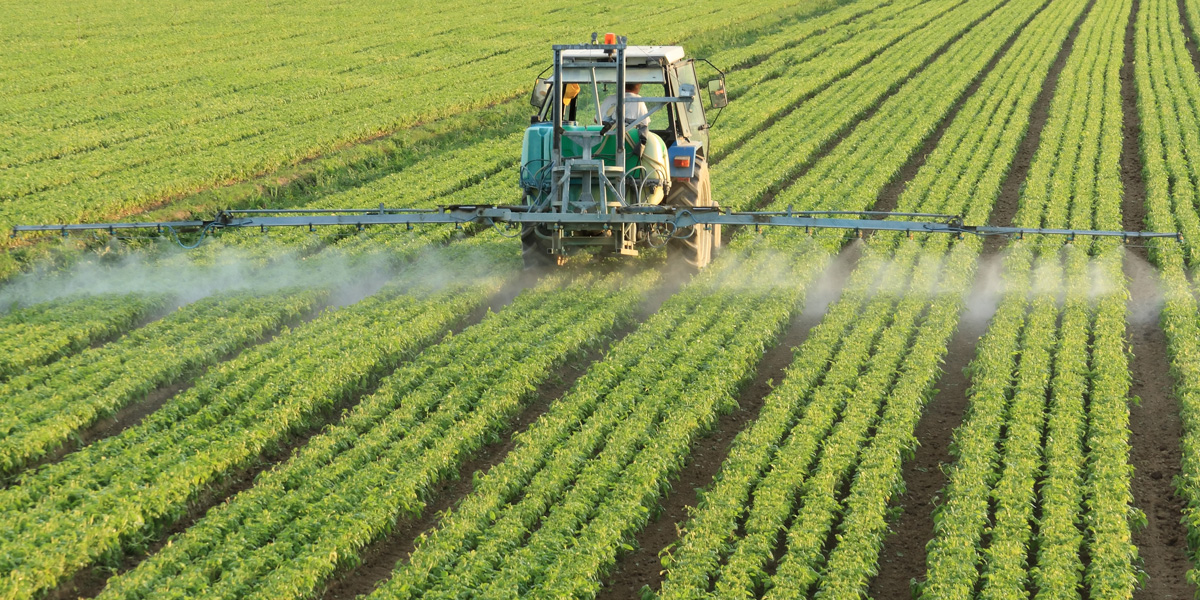
European Court of Justice ruling could challenge many pesticide authorisations
Pesticide formulations as sold and used must be tested in long-term toxicity and carcinogenicity tests, according to a new ruling from the European Court of Justice that is set to challenge the authorisation of pesticide formulations throughout the EU.
Currently in EU pesticide authorisations, only the pesticide's declared "active substance", e.g. glyphosate in the case of Roundup, are tested for long-term toxicity and carcinogenicity in studies sponsored by the industry applicant. And the EU's food safety agency EFSA only considers the results of these studies on the isolated "active substance", while ignoring the toxic effects of the complete pesticide formulations as sold and used.
The problem with this approach is that numerous studies show that the individual added ingredients (adjuvants or co-formulants) in the pesticide formulations can be more toxic than the "active substance" and that the complete formulations, consisting of many potentially toxic substances mixed together in a chemical "cocktail", are generally more toxic than the isolated "active substance".
The complete formulations are approved at EU Member State level on the basis of only short-term acute toxicity tests. The Member States have not required long-term toxicity and carcinogenicity testing.
But the Court of Justice's new ruling explains that long-term toxicity and carcinogenicity tests must be carried out both for active substance authorisation at European level and for formulated product marketing authorisations at Member State level on a case-by-case basis.
The relevant wording of the ruling is: "It cannot be concluded that Regulation No 1107/2009 exempts the applicant from submitting tests of long-term carcinogenicity and toxicity relating to the [formulated] plant protection product that is the subject of an application for authorisation. In that context... such a product can be authorised only if it is established that it has no immediate or delayed harmful effect on human health, the burden of adducing proof of that lying... on the [industry] applicant. A plant protection product cannot be considered to satisfy that condition where it exhibits any long-term carcinogenicity and toxicity."
The attorney Guillaume Tumerelle, based in Montélimar, France, commented in a statement that the Court of Justice's ruling showed that the EU pesticide legislation is not currently applied, since "Marketing authorisations are issued without long-term toxicity and carcinogenicity analysis of the formulated products as marketed."
Tumerelle believes that the Court of Justice's ruling could lead to pesticide product bans: "Failure to comply with this procedure should lead to the immediate withdrawal of many marketing authorisations for pesticides."
The European Court of Justice's new ruling came in response to questions raised by a French court, the Criminal Court of Foix. The Court of Foix's questions concerned the case of French environmentalists who say they had a duty to damage containers of Roundup because of the insufficient warnings about the effects of the glyphosate herbicide.
The environmentalists were represented in the case by the attorney Guillaume Tumerelle, who circulated the analysis that we quote from above.
The Court of Foix also asked the Court of Justice about the failure of the EU pesticides authorisation system to take into account the "cocktail effect" of the many toxic substances mixed together in a formulated pesticide product. The Court of Justice was asked to rule on whether the failure to take into account the cumulative effects of toxic substances constituted a failure to comply with the precautionary principle.
The Court of Justice responded by saying, "The procedures leading to the authorisation of a plant protection product must necessarily include an assessment not only of the specific effects of the active substances contained in that product, but also of the cumulative effects of those substances and their effects combined with other constituents of that product."
Tumerelle wrote, "This judgment provides a very useful interpretation of the European Regulation on methods for authorising pesticides to be placed on the market. The interpretation of the Court of Justice shows that legal procedures are not applied or are incorrectly applied. This judgment now makes it possible to challenge a large number of marketing authorisations which have not complied with the European procedure, in particular the marketing authorisation for glyphosate-based herbicides, which is based on an EFSA analysis that does not take into account the cocktail effect of molecules associated with glyphosate."
Tumerelle concluded, "We will... be able to raise the illegality of many marketing authorisations as a result of this judgment."
GMWatch adds that the ruling confirms our long-held view that the EU's pesticide regulation 1107/2009 is basically sound. The main problem is that the authorities – the Member States, the Commission and EFSA – are not acting in accord with the law, or with the official guidance documents developed to advise on its implementation.
Public health and environment may turn out to be the winners
In the case brought before the Court of Foix, Mathieu Blaise and 19 others were charged with defacing private property in Ariège, France. Invoking the doctrine of necessity, Blaise and his co-defendants argued that their aim was to protect public health. They said that Roundup was being sold without sufficient warnings about the harms caused by glyphosate, so they had a duty to alert the shops whose Roundup they damaged, as well as their customers.
The Court of Foix thus invited the European Court of Justice to weigh in on whether “EU legislation is capable of fully ensuring the protection of the human population.”
In its ruling, the Court of Justice delivered a resounding endorsement of the EU pesticide regulation, saying that the Foix case “revealed nothing capable of affecting the validity of Regulation (EC) No 1107/2009".
While the environmentalists lost their case on a personal level, the Court of Justice's resulting clarification of the EU's pesticide regulation should significantly raise the bar on the proof of safety that pesticide manufacturers have to meet in order to place their products on the market. So public health and the environment may end up being the winners.